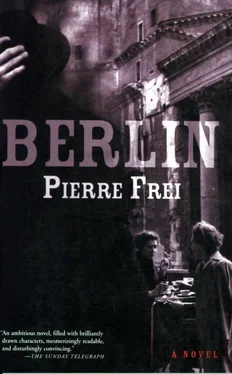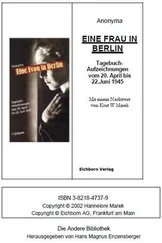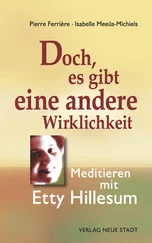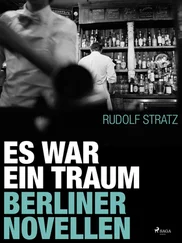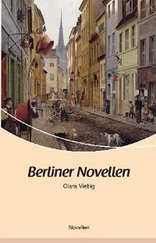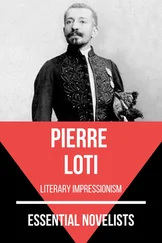All finished?' asked Mato when she joined him in the boat.
All finished.' Exhausted, she crawled underneath the tarpaulin.
A Gestapo special unit came from Berlin. Their investigations led nowhere. Helga had cut the letters for her message out of the Spreewaldboten newspaper and stuck them together. She had taken the sheet of paper from a new school exercise book belonging to the Hejdus girls, the sort you could buy anywhere, and she burned the rest of the exercise book. She had been wearing gloves throughout her nocturnal operations. Moreover, she had been officially missing for weeks, so no one connected her with Urban's death.
'People are furious,' reported Hejdus. He had been in the town. 'They smashed up the gas truck. No one knows who was driving it.' He looked hard at Helga. 'Well, we don't know anything either.'
Special units of the police and the SS combed the entire forest area on foot and in motorboats over the next few days, but the water prevented their dogs from picking up a trail. Helga, Karl, Mato and two other men who had not joined up spent many hours in the hiding place under the house. Finally the search troops were withdrawn. The Spreewald had given away none of those it protected.
Nor did it give them away in the months to come. While squadrons of Allied bombers flew over them in the direction of Berlin, the people on the Kaupe continued their simple way of life. A beautiful spring made up for the last winter of the war. March was warm and sunny, and April as hot as summer. Helga, Mato and Karl had to go down under the house less and less often. The rulers of the Greater German Reich, not so great now, had worse problems than the Sorbs.
Helga and Mato had climbed up to the raised hide at the mouth of the channel, not to keep watch but for one of their secret meetings. Mato was sitting on the narrow bench, leaning back. Helga was astride him, riding them both to a satisfying climax. They made love when the opportunity offered, Mato with a young man's amazed ardour, Helga enjoying herself very much. She was thirty-five, and these physical encounters did her good. The inhabitants of the Kaupe knew about the relationship and tacitly approved.
The others were all sitting in the sun when the two of them came back. A biplane with the red star on its wings flew overhead, purring like a sewing machine. The girls waved up at it. The pilot waved back. 'Well, it'll soon be over now,' said Zastrow. He had given up his porter's job. 'Remains to be seen if the new masters are any better than the old,' he added sceptically.
The new masters arrived on a Sunday. Helga was swimming. She loved those moments in the cool water when she felt weightless and free. In spite of the thunder of the guns, which was getting closer and closer, the war had remained improbable, something which didn't seem to affect her. Now, all at once, it became reality. A shallow, motorized pontoon glided along the waterway and made fast. Six young Red Army soldiers jumped on land, sub-machine guns drawn and ready. One of them had a pockmarked, Mongol face. With a couple of strokes, Helga reached the bank. The soldiers stared at her. They had never seen a woman in a bathing suit before.
One of them shouted and fired a salvo into the blue sky. The others roared something. Two of them seized Helga. She defended herself in silence, but she knew she had no chance.
'Mama, Mama!' Karl came racing up. He was a strong lad of nearly fifteen now, and fearless in his simple innocence. He made for the intruders like a madman, thrust them aside and stationed himself protectively in front of his mother.
'Karl, don't, they'll shoot!' she begged. Her son stood rooted to the spot. One of the six called something out in surprise. He took the pockmarked soldier's arm and pulled him over to Karl. They could all see that the man of Mongolian origin and the mongoloid boy looked like brothers. The men stared in amazement. The soldier hugged Karl and slapped him on the back. The others laughed and applauded. Helga ran into the house, and no one stopped her.
Hejdus had placed himself by the stove with his four women behind him. He was holding a shotgun. 'We'll kill ourselves first,' he growled.
Quickly, Helga flung some clothes on. 'What about your famous Spreewald hospitality?' she cried, running out again. The soldiers were talking to Karl and laughing. Karl took Helga's arm. 'Mama,' he told his new friends. 'My Mama.'
One of them understood. 'Matka.' He pointed to first mother, then son. 'Sin.'
Frau Wanda and the three girls had put on their traditional caps and shawls and carried out trays with water, bread and salt on them. They bobbed curtseys, not submissively but with a welcoming smile. The soldiers understood this gesture of hospitality, and took what was offered with thanks. The two Zastrows came hesitantly out of their cottage. After hiding his shotgun, Hejdus joined them.
Then there was real eating and drinking: sausage made with grits, pancakes, millet and cabbage, with sour milk to drink. They all laughed and talked. The Sorbs and Russians were delighted to find words common to both their Slav languages.
Papa Zastrow ventured to put it into words. 'Friends, I think the war is over.'
Helga had never seen her son so happy before. He raced around in high excitement, filling the guests' plates and mugs. Later they danced to Mato's accordion. Karl stumbled awkwardly around with Breda. He couldn't get enough of the fun. Then, in the middle of the dance, he collapsed. Helga was beside him at once. He lay on the ground, breathing heavily, his eyes closed, his pulse barely perceptible.
The men carried him into the house. Helga undressed him, rubbed him with juniper spirit, and covered him up to keep warm. She sat beside the bed and held his hands. She knew this was the end. His heart, underdeveloped as in all mongoloid children, had held out for almost fifteen years. He opened his eyes. 'Mama,' he said thickly.
You are dying free, my son,' she whispered. 'That's my gift to you.'
Outside, the soldiers started the engine of their pontoon and cast off. The noise of the engine died away. All was quiet in the bedroom. Karl had stopped breathing.
They buried Karl behind the house. The girls wept, but Helga had no tears to shed. The knowledge that she had carried out her task consoled her. She had looked after him and protected him from his first moment of life to his last, had fought for him and defended him, had given him good, happy times. Now that it was all over she couldn't stay in the Spreewald. She returned from Cottbus to Berlin on the roof of a freight train.
The building in Sophie-Charlotte-Strasse was intact, but it was brimming over with people who had been bombed out. Helga kept applying to the Housing Department until they finally let her have a room in her own house. Until then she stayed with her sister in Tempelhof. Monika's small daughter Erika was five. She last saw her father in '42 and can't remember him. They say it will be years before the Russians let their prisoners of war go. Young Frau Pillau next door isn't waiting that long. She takes a student to bed from time to time. It must be fun with a really young man, don't you think?'
Helga told her about her times with Mato. A dear boy. He insists he's coming to visit me here, but I hope some Spreewald girl will put a stop to that. I really don't like the idea. I have to put my life in order and look for work.'
'Why don't you go back to your old job? Children's nurses are always in demand,' Monika encouraged her.
One day soon after that Helga went to the Charite, which was now in the Soviet-occupied sector. The Western Allies had moved into Berlin a few days earlier and taken over their own sectors of the capital. There were no visible lines of demarcation between West and East, only several large and ugly notices on the major thoroughfares: YOU ARE NOW LEAVING THE BRITISH — FRENCH — AMERICAN — SECTOR OF BERLIN. The Berliners weren't bothered. They went all over their city or out of it, on foraging expeditions or to search for friends and relations who had been bombed out.
Читать дальше
